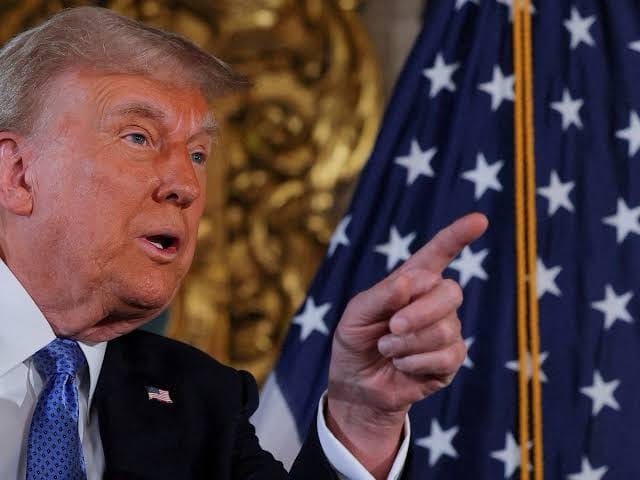Trump threatens EU with tariffs over trade imbalance, energy imports
President-elect Donald Trump on Friday expanded his list of trade targets, threatening the European Union with tariffs unless the bloc increases its imports of U.S. goods, particularly oil and natural gas.

President-elect Donald Trump on Friday expanded his list of trade targets, threatening the European Union with tariffs unless the bloc increases its imports of U.S. goods, particularly oil and natural gas.
“I told the European Union that they must make up their tremendous deficit with the United States by the large-scale purchase of our oil and gas,” Trump posted on social media shortly after 1 a.m. “Otherwise, it is TARIFFS all the way!!!”
The U.S. trade deficit with the EU reached $209 billion in 2023, with $576 billion in imports from Europe and $367 billion in U.S. exports, according to the Census Bureau. While Trump’s blunt remarks demanded immediate action, his transition team did not clarify what steps might follow.
The EU, which operates as a collective of 27 member states, faces unique challenges in responding to such demands. EU Commission spokesman Olof Gill expressed readiness for dialogue, saying, “We are ready to discuss with President-elect Trump how we can further strengthen an already strong relationship, including by discussing our common interests in the energy sector.”
Gill highlighted the EU’s ongoing efforts to reduce reliance on Russian energy and diversify supply sources but refrained from detailing any future commitments, noting the new administration has not yet assumed office.
Experts were divided over Trump’s approach. Scott Lincicome of the Cato Institute interpreted the move as groundwork for future negotiations, saying, “This is, for better or worse, a lot of what we’re going to see for the next four years.”
Despite the trade imbalance, the economic relationship between the U.S. and EU is intricate. For instance, German automaker BMW imports parts for its South Carolina plant, a trade flow that ultimately supports U.S. jobs. Moreover, the U.S. accounted for more than half of the EU and UK’s liquified natural gas (LNG) imports in 2023, with volumes tripling since 2021 due to Russia’s invasion of Ukraine.
Trump’s energy demands echo his first presidency, during which he struck a 2018 deal with then-European Commission President Jean-Claude Juncker to increase LNG exports to Europe. However, as noted by the University of Pennsylvania’s Kleinman Center for Energy Policy, the U.S. government cannot mandate where companies send their exports, nor can the EU compel member states to buy American fossil fuels.
Energy Secretary Jennifer Granholm recently warned that unrestricted LNG exports could drive up domestic prices and carbon emissions. Meanwhile, Trump has maintained his focus on expanding fossil fuel production to reduce costs for U.S. consumers still reeling from inflation spikes in 2022.
As Trump sharpens his rhetoric on trade and energy, the EU faces the challenge of balancing diplomatic engagement with its energy diversification goals and trade policies.










